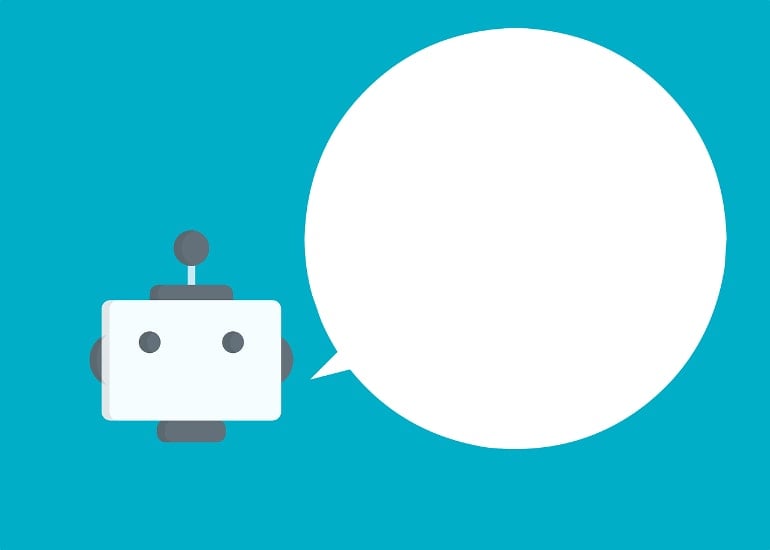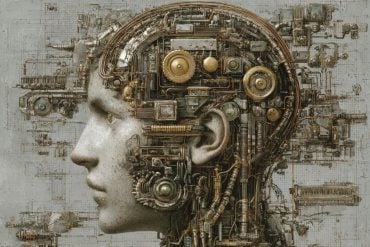Summary: When using AI-enabled chat tools, people have more effective conversations, perceive each other more positively, and use more positive language.
Source: Cornell University
Cornell University researchers have found people have more efficient conversations, use more positive language and perceive each other more positively when using an artificial intelligence-enabled chat tool.
The study, published in Scientific Reports, examined how the use of AI in conversations impacts the way that people express themselves and view each other.
“Technology companies tend to emphasize the utility of AI tools to accomplish tasks faster and better, but they ignore the social dimension,” said Malte Jung, associate professor of information science.
“We do not live and work in isolation, and the systems we use impact our interactions with others.”
However, in addition to greater efficiency and positivity, the group found that when participants think their partner is using more AI-suggested responses, they perceive that partner as less cooperative, and feel less affiliation toward them.
“I was surprised to find that people tend to evaluate you more negatively simply because they suspect that you’re using AI to help you compose text, regardless of whether you actually are,” said Jess Hohenstein, lead author and postdoctoral researcher. “This illustrates the persistent overall suspicion that people seem to have around AI.”
For their first experiment, researchers developed a smart-reply platform the group called “Moshi” (Japanese for “hello”), patterned after the now-defunct Google “Allo” (French for “hello”), the first smart-reply platform, unveiled in 2016. Smart replies are generated from LLMs (large language models) to predict plausible next responses in chat-based interactions.
Participants were asked to talk about a policy issue and assigned to one of three conditions: both participants can use smart replies; only one participant can use smart replies; or neither participant can use smart replies.

Researchers found that using smart replies increased communication efficiency, positive emotional language and positive evaluations by communication partners. On average, smart replies accounted for 14.3% of sent messages (1 in 7).
But participants who their partners suspected of responding with smart replies were evaluated more negatively than those who were thought to have typed their own responses, consistent with common assumptions about the negative implications of AI.
“While AI might be able to help you write,” Hohenstein said, “it’s altering your language in ways you might not expect, especially by making you sound more positive. This suggests that by using text-generating AI, you’re sacrificing some of your own personal voice.”
Said Jung: “What we observe in this study is the impact that AI has on social dynamics and some of the unintended consequences that could result from integrating AI in social contexts. This suggests that whoever is in control of the algorithm may have influence on people’s interactions, language and perceptions of each other.”
Funding: This work was supported by the National Science Foundation.
About this artificial intelligence research news
Author: Becka Bowyer
Source: Cornell University
Contact: Becka Bowyer – Cornell University
Image: The image is in the public domain
Original Research: Open access.
“Artificial intelligence in communication impacts language and social relationships” by Malte Jung et al. Scientific Reports
Abstract
Artificial intelligence in communication impacts language and social relationships
Artificial intelligence (AI) is already widely used in daily communication, but despite concerns about AI’s negative effects on society the social consequences of using it to communicate remain largely unexplored.
We investigate the social consequences of one of the most pervasive AI applications, algorithmic response suggestions (“smart replies”), which are used to send billions of messages each day.
Two randomized experiments provide evidence that these types of algorithmic recommender systems change how people interact with and perceive one another in both pro-social and anti-social ways.
We find that using algorithmic responses changes language and social relationships. More specifically, it increases communication speed, use of positive emotional language, and conversation partners evaluate each other as closer and more cooperative.
However, consistent with common assumptions about the adverse effects of AI, people are evaluated more negatively if they are suspected to be using algorithmic responses.
Thus, even though AI can increase the speed of communication and improve interpersonal perceptions, the prevailing anti-social connotations of AI undermine these potential benefits if used overtly.







